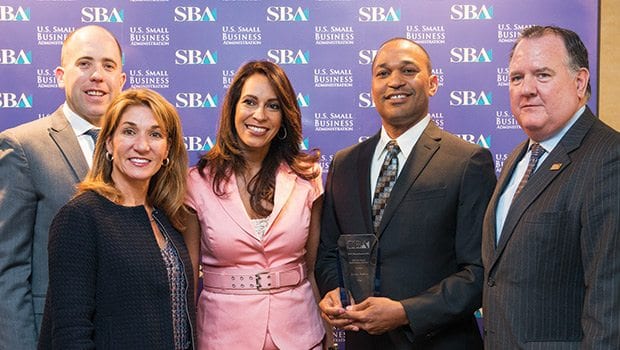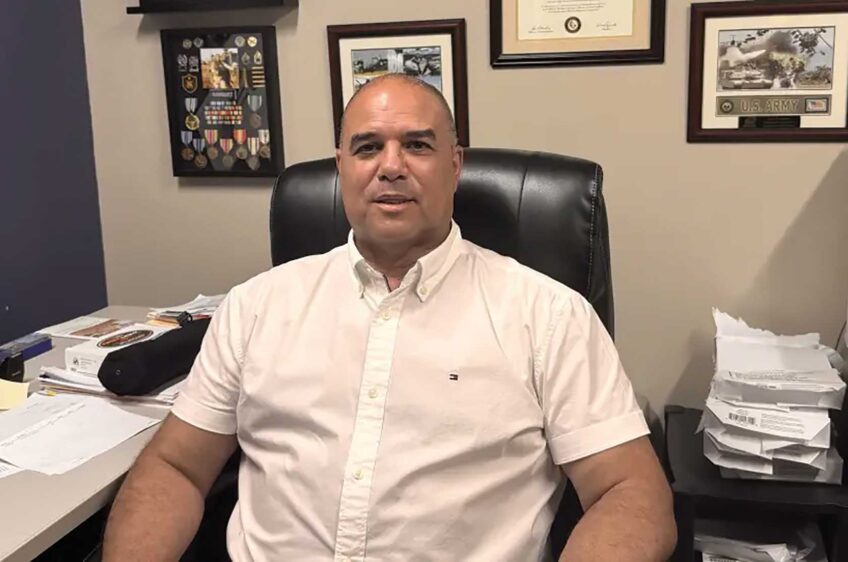SBA makes no-fee loans
Lending program aimed at helping minority- and women-owned businesses

The U.S. Small Business Administration is helping bolster the small business economy in Massachusetts through capital lending programs. According to SBA lending data, in fiscal year 2016 the SBA Massachusetts District Office was number one among 68 national district offices in approving loans less than $50,000, number two in approving loans less than $150,000, and number two in total loan approvals.
The federal agency, created in 1953, has been counseling and aiding the interests of small business owners, including historically underserved entrepreneurs, since 2012 to preserve free enterprise and strengthen the country’s overall economy.
“One of the big things that is driving activity are the fee waiver incentives,” said SBA Massachusetts District Director, Robert Nelson.
Initially, all loans guaranteed by SBA were given a “guarantee fee” based on the loan’s maturity and the dollar amount guaranteed. However, since 2013, for loans under $150,000, there is no upfront fee charge to the small business, Nelson said.
Leading the nation in fee waiver savings, the Massachusetts District Office is increasing access to capital for minorities, women, and U.S. veterans. “The thought was, if we can increase all loans under $150,000, it’s going to increase loans to underserved markets and that’s what it’s done across the country and state,” said Nelson.
A painless process
The primary loan programs for small businesses, the 7(a) and the 504, have seen a 19.3 percent increase in dollar amount in fiscal year 2016, the largest increase in the past five years.
The 7(a) Loan Program approved 2,566 loans for a total of more than $383.3 million and the 504 Loan Program approved 270 loans for more than $395.7 million.
Jose de la Rosa, CEO and co-founder of Guardian Healthcare, was able to expand his certified health agency by taking out a 504 loan with SBA. Specializing in at-home personalized and culturally competent care, Guardian Healthcare has grown tremendously since 2010. De la Rosa and his wife Zoraida started with three employees and now employ 300, operating throughout four office locations in Massachusetts.
De la Rosa recently bought a new office location in Jamaica Plain, which he said would not have been possible “had it not been for this 504 program.”
He described the loan process as “painless” and the 10 percent down payment more affordable than other loan programs. Otherwise, “it would have affected cash flows in a difficult way,” he said.
According to Nelson, the SBA has been working on streamlining the loan application process for both lenders and borrowers through technological tools.
They created Linc, or Leveraging Information and Networks to access Capital, an online matching program that helps connect small business owners with lenders. The business owner develops a profile, answering 20 questions about their business and what kind of loans they are eligible for, and Linc matches them with lenders. “They can start having a discussion and it’s turning into real loans,” said Nelson.
Extensive community
SBA One is the agency’s electronic loan processing tool, an upgrade from SBA’s older program, E-Tran, which helps save time and money in processing fees for lenders. It automates the lending transaction, from determining loan eligibility among borrowers, to closing loans through electronic signatures.
“We are so vibrant here in the Commonwealth,” said Nelson of SBA’s extensive small business community in Massachusetts. Through the agency’s national network of education centers for women, veterans and other entrepreneurs, as well as the SCORE Business Mentor program, loaning capital is undeniably less risky when borrowers are knowledgeable and trained on how to best manage their business finances.
“We are out and about in the Commonwealth working with economic development organizations, development officials, chambers of commerce,” said Nelson. “We’re connecting with them, creating partnerships and trying to let the public know about SBA and how we can help them.”






